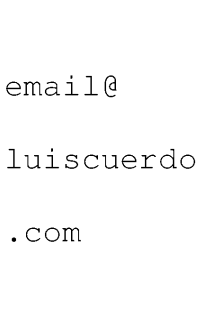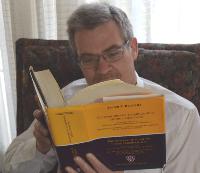Poll: Are written reference sources (dictionaries, etc.) a thing of the past? Thread poster: ProZ.com Staff
|
|---|
This forum topic is for the discussion of the poll question "Are written reference sources (dictionaries, etc.) a thing of the past?".
View the poll here
A forum topic will appear each time a new poll is run. For more information, see: http://proz.com/topic/33629
| | | | | Yes, printed references are a thing of the past. | Jan 23, 2008 |
I guess you are referring to "printed" references instead of "written" references.
| | | | | Printed references, we need them for many reasons | Jan 23, 2008 |
For a number of reasons:
1. Because once you print them (and printed in an industrial scale they don't take much energy to print and bind), you don't spend any energy at all to use them as a reference.
2. Their format is not a problem in the long run as software or computers evolve.
3. You pay them only once.
4. Their disposal does not cause environmental threats (you can even burn them in your fireplace if you should wish). Their material can be recy... See more For a number of reasons:
1. Because once you print them (and printed in an industrial scale they don't take much energy to print and bind), you don't spend any energy at all to use them as a reference.
2. Their format is not a problem in the long run as software or computers evolve.
3. You pay them only once.
4. Their disposal does not cause environmental threats (you can even burn them in your fireplace if you should wish). Their material can be recycled easily without producing highly toxic substances.
5. Last but not least: They are made by recognised, well-trained, knowledgeable people whose names are stamped on paper and who have a pride in seeing their work printed, i.e. they try to do it right.
They do have one problem: for an up-to-date version along time you need to purchase a new copy. To balance that, they can be beautiful and pleasant to touch.
And many people will feel that they have two additional problems:
1. They are made of paper, which is allegedly bad for the environment. But paper nowadays comes from planted forests, not natural forests. Both maintenance of the forests and production of paper generate biomass, a renewable source of energy. Gases produced by the pulping process are burnt and their energy recovered. Paper is not that bad considering the highly environmentally friendly pulp and paper plants increasingly in operation today all over the world.
2. They have a weight and you cannot hammer them into your laptop. OK. But would any professional translator completely rely on the generic on-line or software-based resources available today, completely forgetting about specialised dictionaries and technical books only available on paper today?
All in all, I don't see them disappearing for now. ▲ Collapse
| | | | | Poor quality in online resources | Jan 23, 2008 |
I will keep the name for myself, but recently one of our customers asked us to evaluate the Spanish version of an online dictionary sold by an European company, as part of their decision process to purchase the product. The results were appalling:
- Found 5 typos in the 150 terms we checked
- Found plainly incorrect translations in some other 10 cases, apart from many doubtful ones which could be discussed
- Did not find common things like "electrostatic di... See more I will keep the name for myself, but recently one of our customers asked us to evaluate the Spanish version of an online dictionary sold by an European company, as part of their decision process to purchase the product. The results were appalling:
- Found 5 typos in the 150 terms we checked
- Found plainly incorrect translations in some other 10 cases, apart from many doubtful ones which could be discussed
- Did not find common things like "electrostatic discharge", "European Union", "United Nations", "enteritis", "carbon steel", "crop" in any of the agricultural meanings, "gin", the alcoholic beverage, "user interface", "climate change", "rectum", "deceleration", "diuretic"... and the list keeps going.
Is this the kind of online resources we should be using instead of printed references? The thought of it makes me shiver folks!!  ▲ Collapse
| | |
|
|
|
| | | I have yet to see one resource better than my trusted old-school dictionaries | Jan 23, 2008 |
Although I am happy to have access to lots of different resources other than printed dictionaires (online resources, dictionaires on CD-ROM, etc.), I have yet to see one such resource that can entirely replace a printed dictionary.
First of all, resources on the internet are often mere jigsaw puzzles put together using different sources, by different people who don't all use the same standards and don't always contribute correct terms - and entries are also often incomplete.
<... See more Although I am happy to have access to lots of different resources other than printed dictionaires (online resources, dictionaires on CD-ROM, etc.), I have yet to see one such resource that can entirely replace a printed dictionary.
First of all, resources on the internet are often mere jigsaw puzzles put together using different sources, by different people who don't all use the same standards and don't always contribute correct terms - and entries are also often incomplete.
The problem with CD-ROMs is that there are not too many out there yet that are as complete as their paper versions. Unfortunately, the ones that I found pretty good are also CD-ROM versions of their paper predecessors which were not that good from the outset (the CD-ROM is more user-friendly, but ultimately, I am not looking for user-friendliness or portability but for an authoritative source of terminology, which most printed dictionaries also lack).
Also, even if there were enough good CD-ROM dictionaries to allow me to leave traditional dictionaries behind, I don't see myself constantly opening my CD drive, and switching CDs each five seconds because I couldn't find my term right away and have to check each of my dictionaries. I may have many dictionaries, but I will not have more than one CD drive anytime soon - and most of such dictionaries can not be entirely loaded onto a machine to avoid using a CD drive.
For all these reasons, I believe good old printed dictionaries are here to stay. I hope I am right... I would feel miserable otherwise! ▲ Collapse
| | | | mediamatrix (X)
Local time: 12:09
Spanish to English
+ ...
| No, not yet. | Jan 23, 2008 |
My 'feeling' - nothing more than that - is that the printed word is about half-way through it's natural lifecycle.
If we attribute to Gutenburg the birth of printed books that gives us another half-millenium or so of hard and soft-bound pleasure.
I guess that'll see most of us through to retirement!
MediaMatrix
[Edited at 2008-01-23 23:58]
| | | | | They will be (very shortly) | Jan 24, 2008 |
Regarding quality, everything in hard-copy can be digitalised, those funny online dictionaries are not the reference to follow but the digital versions of those same "old-school" dictionaries.
The text is exactly the same but easyer and faster to check. Books mightl survive like vynil discs do, just for nostalgics that enjoy the touch of paper.
About the prognostics, it does look like we are half-way through the life cycle of books since they are still essential, but ev... See more Regarding quality, everything in hard-copy can be digitalised, those funny online dictionaries are not the reference to follow but the digital versions of those same "old-school" dictionaries.
The text is exactly the same but easyer and faster to check. Books mightl survive like vynil discs do, just for nostalgics that enjoy the touch of paper.
About the prognostics, it does look like we are half-way through the life cycle of books since they are still essential, but evolution is exponential and not lineal. My guess is that dictionaries will be early pensioners in a couple of decades. ▲ Collapse
| | |
|
|
|
Pundora 
India
Local time: 21:39
English to Hindi
+ ...
| Not entirely | Jan 24, 2008 |
Not many dictionaries in my language are available online. So, we have to rely mostly on printed dictionaries. The good ones are in paper form only. Also, There is no spellcheck software for Hindi.
Nevertheless, I find the online English reference materials extremely helpful and use it quite a lot while translating.
Pundora
| | | | | Try two days without the Internet! | Jan 24, 2008 |
My Internet connection did not work for two days once. I did have a backlog of things to check up when it was reinstated, but I worked almost normally for those two days, and discovered several excellent 'old school' dictionaries and refrence books on my shelves that I had half forgotten.
Googling is dazzling and sometimes quicker than getting a book off the shelf and turning its pages, but my books are often more reliable.
CD-versions of some of the books are a fine co... See more My Internet connection did not work for two days once. I did have a backlog of things to check up when it was reinstated, but I worked almost normally for those two days, and discovered several excellent 'old school' dictionaries and refrence books on my shelves that I had half forgotten.
Googling is dazzling and sometimes quicker than getting a book off the shelf and turning its pages, but my books are often more reliable.
CD-versions of some of the books are a fine compromise, but how many of these can you have installed on one PC?
Another point is that I am enormously lucky to have English as my target language.
My other languages are spoken in countries with good resources and expert lexicographers, so the on-line resources are top quality too, and that is the way the world is going.
But as Pundora says, on-line resources still don't exist in all languages and domains, and some colleagues will be far more dependent on books than others.
In other areas, the books have not yet been written or dictionaries compiled, and perhaps they never will appear in book form - they will be digitalised at once!
 ▲ Collapse
| | | | Parrot 
Spain
Local time: 18:09
Spanish to English
+ ...
| Been there, done that | Jan 24, 2008 |
Christine Andersen wrote:
Try two days without the Internet!
My office connection crashed in the middle of three huge jobs in each of my major language pairs. I could work on the portable at home, but the trips to the office to fish out my specialized dictionaries were unavoidable.
| | | | Reed James
Chile
Local time: 12:09
Member (2005)
Spanish to English
Viktoria Gimbe wrote:
Also, even if there were enough good CD-ROM dictionaries to allow me to leave traditional dictionaries behind, I don't see myself constantly opening my CD drive, and switching CDs each five seconds because I couldn't find my term right away and have to check each of my dictionaries. I may have many dictionaries, but I will not have more than one CD drive anytime soon - and most of such dictionaries can not be entirely loaded onto a machine to avoid using a CD drive.
Viktoria,
Actually, you can load all your CDs onto your hard drive and never have to insert the original CD again. There is a nice program called Alcohol 120%, which you can currently buy for a very low price at Serial Dealers. It mounts CDs as a virtual disk, and since hard drives are quite spacious these days, you can mount your whole collection of dictionaries and still have plenty of free disk space left.
Reed
| | |
|
|
|
One other point worth noting: you can't jot down your own hard-won translation on someone else's web page... my medical dictionary is full of extra terms I've added myself after long hard searches to arrive at the best translation. For general stuff I normally go online, but my paper medical dictionary is my first port of call for medical terminology.
| | | | Textklick 
Local time: 17:09
German to English
+ ...
In memoriam
Reed D. James wrote:
It mounts CDs as a virtual disk, and since hard drives are quite spacious these days, you can mount your whole collection of dictionaries and still have plenty of free disk space left.../
Hi all
I just heard out about this piece of freeware in Jost Zetzsche's newsletter. It allows you to include even further search sources. http://www.intelliwebsearch.com/index.html
"...In this new version you can have up to 50 pre-configured dictionaries, simultaneously send your query to as many dictionaries or browsers as you want, and, as I mentioned above, also search offline content...."
Haven't tried it yet, but I thought I'd add this note before I forgot about the relevance to this thread.
Chris
| | | | To report site rules violations or get help, contact a site moderator: You can also contact site staff by submitting a support request » Poll: Are written reference sources (dictionaries, etc.) a thing of the past? | Trados Studio 2022 Freelance | The leading translation software used by over 270,000 translators.
Designed with your feedback in mind, Trados Studio 2022 delivers an unrivalled, powerful desktop
and cloud solution, empowering you to work in the most efficient and cost-effective way.
More info » |
| | Anycount & Translation Office 3000 | Translation Office 3000
Translation Office 3000 is an advanced accounting tool for freelance translators and small agencies. TO3000 easily and seamlessly integrates with the business life of professional freelance translators.
More info » |
|
| | | | X Sign in to your ProZ.com account... | | | | | |















